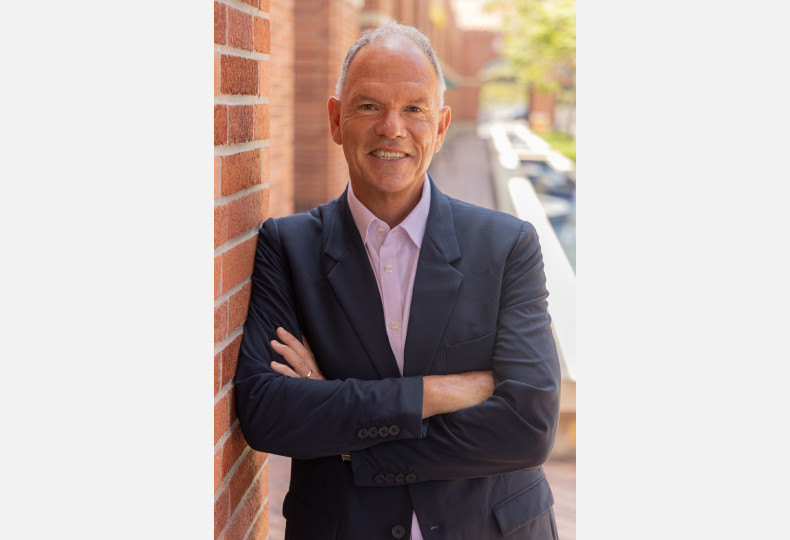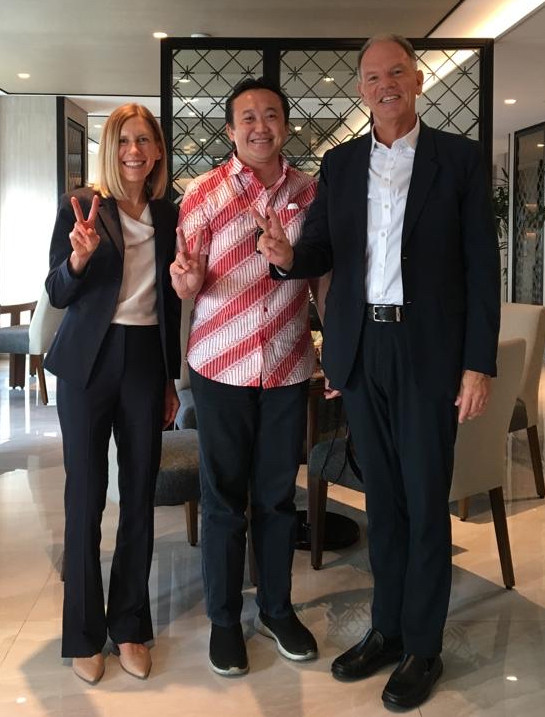Popular Reads
Top Results
Can't find what you're looking for?
View all search resultsPopular Reads
Top Results
Can't find what you're looking for?
View all search resultsA Conversation about Globalization with Dean Garrett of USC Marshall School of Business
Sir Winston Churchill once said, “Kites rise highest against the wind, not with it.” As the quotation suggests, despite the presence of headwinds against globalism, it is more essential than ever.
Change text size
Gift Premium Articles
to Anyone
S
ir Winston Churchill once said, “Kites rise highest against the wind, not with it.” As the quotation suggests, despite the presence of headwinds against globalism, it is more essential than ever. Globalization has greatly benefitted numerous industrialized and emerging nations, especially when it comes to economic growth, knowledge-sharing and cross-cultural exchange. As the world faces the threat of recession and borders between states open fully after the pandemic, globalization has not been embraced as it once was, and instead numerous divisive conversations have become amplified.
“Now obviously in the last few years, after nearly 40 years of globalization, we have this evidence of deglobalization, decoupling economy, these challenges between the United States and China. My feeling about that is the importance of international higher education is increased because we need to understand each other better. And the best way to do that is to spend time with people from other parts of the world,” University of Southern California (USC) Marshall School of Business Dean Geoff Garrett said.
This sentiment is the cornerstone of the globalist ideology and practice of the USC Marshall IBEAR [International Business Education And Research] MBA program, under the leadership of Garrett. As a provider of one of the best MBA programs in the world, Garrett has recently toured Indonesia and Singapore in the hope of recruiting the best candidates for USC.
While he is not blind to the affordability issues for some Indonesian candidates, he stresses his desire to find the best applicants to recruit despite their financial standing. USC Marshall has had a long-standing relationship with the ASEAN region, with an incredible alumni base that is filled with the most innovative and successful business leaders in the world, including in Indonesia.
“I think the headline number of alumni [in Indonesia] is 400 or 500. The three things that I’ve been struck by: First, we have alumni who are at the very top of the business world in Indonesia, family conglomerates that control an incredible amount of the Indonesian economy. The second thing is that we now have three generations of alumni in Indonesia; we have very senior people, incredibly active mid-career, and a very strong younger alumni base. And then the third thing is that our Marshall alumni club here, the USC alumni association is incredibly active,” he said about the presence of “Trojans” in Indonesia. In fact, the dean revealed that the independent alumni association successfully managed to vaccinate 40,000 people against COVID-19.
Apart from the huge alumni base in Indonesia, Garrett revealed that the current economic situation as a commodity exporter, the strong technology sector, and numerous improvements in infrastructure are some of the things that attracted him to Indonesia. He expressed his belief that technological transformation and entrepreneurship are increasingly intertwined and will be the key to inclusive growth, a statement he echoed with Indonesia’s Education, Culture, Research, and Technology Minister Nadiem Makarim.
Recently, Marshall School of Business launched two programs in collaboration with USC’s Viterbi School of Engineering and School of Cinematic Arts to show that entrepreneurship is vital across all sectors. Garrett expressed Marshall’s interest in being a part of the transformation happening in the country, both in training people in technology and entrepreneurship, but also in understanding how Indonesia is working to ensure that growth is widely distributed in an incredibly diverse country.
Part of the appeal of USC is its diversity as a global university. The number of international students and the range of international experience that the university offers all of its students is unmatched in higher education. For instance, people are expected to flock from California to Bali for the IBEAR global conference this December. In turn, the IBEAR program is designed for mid-career professionals from all around the world to come to Los Angeles for a year of academic and cultural immersion.
However diverse a place may be, at the end of the day, the best appeal of being a Trojan is the familial ties with fellow alumni all over the world because of the globalization priority of the school.
“I think the thing that sets Marshall apart -- and all of USC -- is the power of the Trojan family; parents, students, alumni, friends, and there’s actually no stronger Trojan family than the Marshall community in Jakarta, Indonesia, it’s just incredible,” Garrett concluded.











